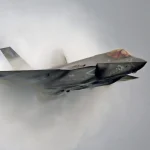Vladimir SmirnovTASS via Getty Images
- JP Morgan researchers predict that Russia’s GDP will shrink 11% due to Western sanctions.
- After its 1998 debt crisis, it only shrank 5.3%.
- Russia’s economy cannot withstand global isolation, despite the protective measures Putin put in place.
Western governments are betting that their sanctions against Russia will be a blow to the country — and so far, it looks like they may be right.
A new report from JP Morgan says that the sanctions, enacted after Russia invaded Ukraine last week, could lead to a “deep” recession. They forecast that Russia’s GDP will drop 11%.
“The sanctions will hit their mark on the Russian economy,” the researchers wrote.
A GDP decline of this magnitude echoes the country’s 1998 debt crisis, when the country also experienced financial turmoil and the collapse of its ruble. Researchers say that sanctions against the central bank, as well as cutting off Russia from the Society for Worldwide Interbank Financial Telecommunication (SWIFT), will further disrupt the money it makes from selling goods and services overseas. They also emphasized that “capital flight” — the flow of money and assets out of a country during a crisis — is leading the central bank to raise interest rates, as thousands of Russia’s middle class have already attempted to flee.
The sanctions aim to put pressure on Russia’s wealthy, oligarch class, but it’s the country’s middle class that is experiencing the biggest blow. As a result of the financial turmoil, the Russian middle-class is less able to pay off their debts, less able to take out loans due to rising interest rates, and is contending with the rising price of goods.
Sanctions are shutting Russia out of the global economy, a network it needs to survive financially
The recession that JP Morgan researchers predict could come sooner rather than later. Evgeny Nadorshin, the chief economist at the Moscow-based PF Capital, told Insider’s Juliana Kaplan it could even begin next month.
That’s because, as JP Morgan researchers point out, the sanctions undermine the two “pillars” that promote the country’s stability: foreign exchange reserves in the Central Bank of Russia that lets it participate in the global economy; and the ratio of Russia’s exports versus its imports. At the end of last year, Russia was exporting more and operating on a surplus of income.
In fact, for the past few years, Russian President Vladimir Putin tried to insulate his country from the impact of potential sanctions from foreign powers. In 2014, the US and Europe sanctioned Russia’s finance, defense, and oil industries due to Russia’s annexation of Crimea. Russia cut more than half of its central bank’s share of US dollars, instead increasing its supply of gold and investing in the Chinese yuan.
Its latest challenge, brought on by sanctions from the United States, United Kingdom, Taiwan, and others, is looking to be insurmountable for Russia’s economy. In comparison to the researchers’ contraction prediction of 11% for Russia’s GDP this year, the country’s GDP shrank only 5.3% in 1998.
Russia was “not a pariah in the world economy before this,” Oleg Itskhoki, an economics professor at the University of California, Los Angeles, told Insider, saying that its removal from the global stage would be devastating for it.
NATO members cutting Russian banks from SWIFT — the Belgian communications system that serves as a neutral platform for banks worldwide to chat about financial transfers, transactions, and trades — is one of the most powerful sanctions they can enact, for instance. And although the move seemed drastic to some governments only last week, they’re beginning to ice Russia out. JP Morgan researchers say it’s one component of a dire picture for the country’s economy.
“The problem is complete isolation of Russia from the rest of the world, which is indeed a catastrophe in many different ways,” Itskhoki said, “an economic catastrophe being only one of them.”
Powered by WPeMatico






